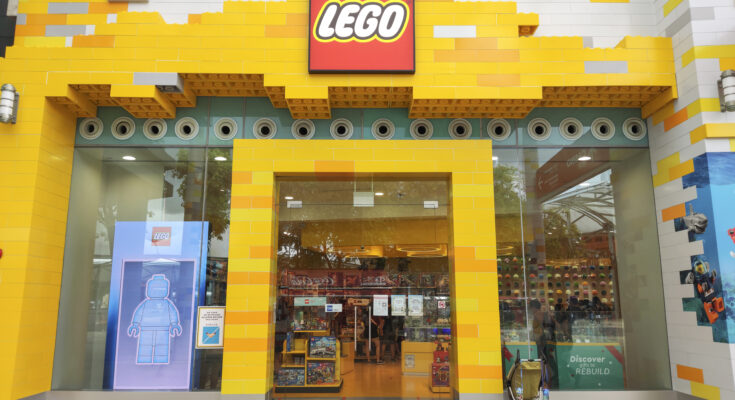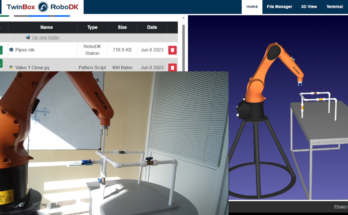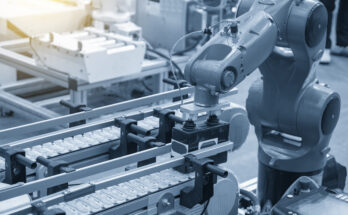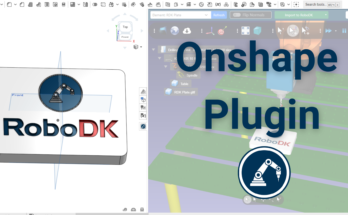Some of the world’s top manufacturing companies are adopting a flexible manufacturing approach to keep up with the ever-changing marketplace.
Flexible automation systems can help to achieve a greater degree of product customization and faster turnarounds. This is particularly important in some industries where customers now expect products that are personalized and almost immediately available.
With robots as one of its core technologies, flexible manufacturing is now the required approach for companies looking to keep ahead in their industries.
Let’s look at some of the best examples of industries where this approach can be applied.
1. Flexible Car Manufacturing
The automotive industry has been using robotics and automation longer than almost any other industry. This trend continues to grow. Today’s consumers want vehicles that are highly customized. They want to choose the color, the media system features, and even the engine size.
Examples of robot applications that could apply, include automated welding, painting, and assembly.
You can read how one company used RoboDK to bring flexible automation to the automotive industry in our case study of RobCo S.W.A.T.
2. Flexible Clothing Manufacturing with Nike

The clothing industry is another great example of an area where this approach can help companies produce customized products. With a flexible system, a clothing manufacturer can quickly deliver small batches of custom-made apparel items.
Examples of robot applications that could apply to flexible clothing manufacturing include fabric cutting, packaging, and inspection.
Nike is one example of a clothing company that has incorporated some automation and flexible manufacturing into its operations. Over the years they have partnered with various automation companies to increase their manufacturing speed and innovate product lines.
3. Furniture Manufacturing Flexibility
Furniture manufacturers can also use flexible manufacturing to create custom pieces. This allows them to create a small batch or even one-of-a-kind items that meet the specific tastes of their customers while reducing unnecessary inventory.
Examples of robot applications that could apply include milling, coating, and engraving.
Read our list of 7 Great Robotic Applications for the Furniture Industry.
4. Flexible Toy Manufacturing with Lego
Toy manufacturers produce dozens of product lines simultaneously, with many variations between different versions of the same product.
Examples of robot applications that could apply include sorting, painting, and packaging.
Lego is one example of a toy company that has embraced flexible manufacturing. In the company’s factory in Billund, Denmark, they have incorporated various robots and other automated machines to produce billions of units per year.
5. Flexible Food Manufacturing
The food industry is another great example. With flexible automation, food manufacturers can improve productivity, manage fluctuating demand, and optimize their workforce. Customizations can range from a simple label change on the packaging to a complete recipe change for different dietary needs.
Examples of robot applications that could apply include packaging, labeling, and palletizing.
6. Flexibility in Medical Devices with Medtronic
Medical device manufacturing is one industry that has had to change production drastically following market changes, during the 2020 Covid pandemic. Those companies that used a flexible manufacturing approach were more able to respond to these changes quickly than those with a more traditional approach.
Examples of robot applications that could apply include machine tending, sorting, and product testing.
Medtronic is an example of a company that has embraced automation and a flexible approach. The company partnered with Foxconn International to scale its ventilator production during the Covid-19 pandemic.

7. Flexible Cosmetic Manufacturing with L’Oréal
Cosmetics manufacturers can also use a flexible manufacturing approach to create custom and small-batch products. The approach can help them meet the increasingly personalized trends in cosmetics.
Examples of robot applications that could apply include packaging, inspection, and palletizing.
L’Oréal is an example of a cosmetics company that has embraced flexible manufacturing. The company incorporates various advanced technologies to achieve this including collaborative robots, digital twins, and augmented reality.
8. Flexible Boat Manufacturing with Ocean Alexander
The boat-building industry is another good example of how this approach can produce customized products, particularly at the luxury end of the market. With a flexible system, manufacturers can efficiently produce custom-made boats to their customers’ specifications.
Examples of robot applications that could apply include painting, welding, and drilling.
Ocean Alexander is one example of a boat-building company that has implemented flexible manufacturing techniques into its production process. Its range of luxury yachts can be customized to different configurations.
9. Bicycle Manufacturing Flexibility
Bicycle manufacturing is another example. With flexible manufacturing, bicycle manufacturers can produce made-to-order products and efficiently personalize their standard product lines.
Examples of robot applications that could apply include welding, assembly, and painting.
10. Flexible Electronics Manufacturing with Canon
The electronics industry is constantly changing and manufacturers are always updating their product lines. They also need to respond quickly to new technologies and actions by their competitors.
Examples of robot applications that could apply include circuit board assembly, product testing, and packaging.
Canon is a great example of an electronics company that has invested in automation and flexible manufacturing. The company’s proprietary automation system incorporates technologies like robots, machine vision, and artificial intelligence to produce electronic products as efficiently as possible.

Flexible manufacturing can offer some significant advantages to businesses, no matter what industry you are in.
By adopting a flexible approach, your business can respond faster to market changes, keep up with customer demands for more personalization, and adapt to varying product demands.
How could you apply flexible automation to your business? Tell us in the comments below or join the discussion on LinkedIn, Twitter, Facebook, Instagram, or in the RoboDK Forum.. Also, check out our extensive video collection and subscribe to the RoboDK YouTube Channel




